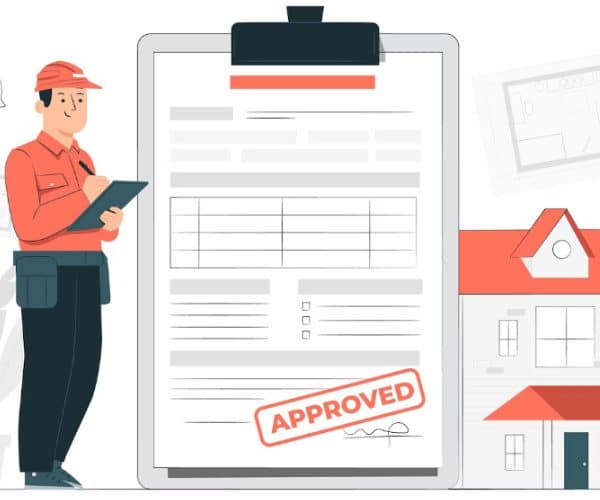Bonded warehouses are storage spaces that are authorized and regulated by the country’s customs authority. These are used by businesses to store products to defer the payment of duties until the products are moved within the customs territory.
These warehouses can facilitate international trade. There are several classes and types of bonded warehouses.
Types and Classes of Bonded Warehouse

There are two types of bonded warehouses:
Dry Bonded Warehouse
A dry bonded warehouse stores all general goods that are subject to VAT and customs duty. Such warehouses can’t store products with excise duty.
Wet Bonded Warehouse
A wet bonded warehouse can store products with an excise duty. Excise duty is a type of tax that is only applicable to certain products like alcohol, fuel, and tobacco.
Importers can store their wet products in these warehouses until they are cleared for sale or transportation without paying the excise duty immediately.
There are eleven classes of bonded warehouses:
Class 1: Government Owned/Leased
Such warehouses are owned or leased by the government. These are used to store merchandise that is under investigation, or examination by the CBP (US Customs and Border Protection), or their final clearance by customs is due.
Such warehouses only store products under the authority/orders of CBP.
Class 2: Privately Owned
Such warehouses are owned by a private party and only store products that belong to the owner. There may be certain cases in which the importer (warehouse owner) uses Class 4 or 5 bonded warehouses.
In these cases, these warehouses fall into Class 2, which is solely booked for the warehouse proprietor.
Class 3: Public Bonded
A public bonded warehouse is used to store imported merchandise only. As these warehouses are publicly bonded, any importer can use them.
Class 4: Bonded Yards
Bonded yards are used to store heavy and bulky products. Some of these products include bulky liquid containers, corrals, feeding pens, building enclosures for imported animals, etc.
Class 5: Authorized Bins
Authorized bins are used to store grains. These are the bonded buildings or even the elevators.
Class 6: For Manufacturer
In these warehouses, manufacturing for exporting can take place. These products are made from imported materials that are subject to the internal revenue tax.
These warehouses can also be used to make cigars from imported tobacco.
Class 7: For Metal-Bearing Material
These warehouses are specifically used for smelting and refining the imported metal-bearing material. This can be done to export it or for domestic use.
Class 8: For Cleaning Products
These warehouses are used for changing the condition of imported merchandise. This includes cleaning, sorting, repacking, but not manufacturing.
These activities are carried out under the supervision of CBP, and the warehouse proprietor has to bear the expenses.
Class 9: Duty-Free Stores
These warehouses sell conditionally duty-free products for use outside CBP territory. These products should be owned by the warehouse proprietor and should be transported from the warehouse to the airport or other exit points.
These products are exported on behalf of individuals departing from the CBP territory for other foreign destinations. These bonded warehouses can also sell other merchandise.
Class 10: For International Travel Merchandise
These warehouses store international travel merchandise or the products that are conditionally duty-free and sold on aircraft rather than duty-free stores.
Class 11: For General Order (G.O.) Merchandise
These warehouses are established to store G.O. merchandise. G.O. merchandise refers to products that are not claimed after 15 days of entry in the US.
How can Businesses Benefit from Bonded Warehouses?

The following are the benefits of using a bonded warehouse for businesses:
Long-Term Inventory Storage
One of the major benefits of storing inventory in a bonded warehouse is that it allows for storing products for a long period. This also helps businesses to save on expenses because bonded warehouses are mostly less expensive than regular ones.
If a business wants to extend the period of inventory storage, it doesn’t cost any taxes initially. Businesses can also defer the payment of VAT or other duties until the products leave the warehouse.
Easy International Shipping
Businesses that operate in international markets can benefit from keeping inventory in a bonded warehouse. This is because it facilitates the international shipping of products.
Not only this, but importing is also a rather simple process in a bonded warehouse. This is because these warehouses are mostly located near ports or airports.
This proximity reduces the time and cost of transport. Bonded warehouses are particularly beneficial for export businesses because the duties are only paid on imports.
Fulfills all Warehouse Requirements
All the requirements of a regular warehouse can be fulfilled using a bonded warehouse as well. Operations such as inventory management and handling of incoming and outgoing products are carried out well in the bonded warehouse.
A bonded warehouse acts like a one-stop shop that can come in handy in many cases. This is because the issue can be resolved from a single point of contact.
Improved Distribution Efficiency Using a bonded warehouse can improve the distribution process. As discussed above, such warehouses are usually close to airports and ports, this adds to the distribution efficiency as well. Businesses can distribute products with a short lead time. This also improves customer service.
Businesses may face some disadvantages of storing products in a bonded warehouse.
What are Some Disadvantages of a Bonded Warehouse?
Below is the detail of some disadvantages of a bonded warehouse:
Different Compliance Requirements
The first disadvantage of keeping inventory in a bonded warehouse is that there are strict regulatory compliances that have to be followed. For example, one of the regulations is that restricted items can’t be kept in such warehouses.
These compliances also vary from country to country. Failure to meet these compliances can cost a hefty amount to the businesses. In extreme cases, companies may face a ban on doing business in the respective country.
Restricted Access to Inventory
Another disadvantage is that the access to inventory is restricted. Now, this doesn’t mean that business representatives aren’t allowed to visit the warehouses.
The problem arises when the bonded warehouse is in another state or country. In this case, businesses can’t directly access the inventory and monitor it.
Another restriction to the access of inventory is that the goods can’t be sold in the domestic market unless customs clear it. This means that if there is a surge in demand, businesses may not be able to make the most out of it due to clearance delays, etc.
Security Concerns
Although the bonded warehouses, in most cases, guarantee the security of products, this may not be true everywhere. Such warehouses provide a standard level of security, which may not be enough for high-value products.
On the other hand, a private warehouse may ensure better security for products based on their value.
Another factor that contributes to the security of such warehouses is their location.A region with compromised law and order won’t be able to guarantee the security of products in a bonded warehouse.
Availability Issues
During the peak season, businesses may find it difficult to store their products.
Such availability issues can cause challenges for businesses to meet revenue targets for peak seasons.
Conclusion
Bonded warehouses are a key player in streamlining international trade. These offer safe storage for products that can be kept without paying immediate customs duties. So, not only do these warehouses facilitate trade but are also cost-efficient for businesses.



